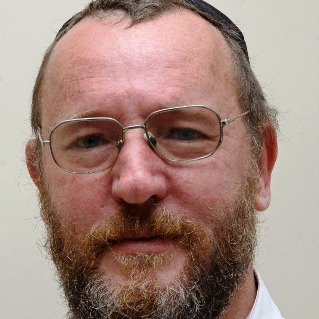
SA

Piggiegate – more bad PR for BDS
DAVID SAKS
One of the results is that 20 years after the democratic transition, the Jewish community is being singled out as having been somehow especially guilty of the crime of apartheid over and above the rest of the white population of which it was only a small part.
That this tactic is having an impact is undeniable. Among the many examples that could be quoted is the statement released last month by the Congress of SA Students (Cosas), in which an SAJBD-led demonstration against anti-Semitism was described as a “gathering of racist white people and armed white militia…” and as an “illegal and unpermitted public gathering, which aimed to portray Jewish people as victims – while they still are enjoying the sweet taste of the yoke of white Aparthied [sic] privilege …a mockery to South African black people”.
The problem for BDS-SA is that sometimes its allies have got a little carried away. Last year’s “Shoot the Jew” incident at Wits was a PR disaster for the organisation, made worse by its national co-ordinator, Muhammed Desai’s inability to concede that there was anything really wrong with it.
More recently, its much-advertised boycott campaign against Woolworths was severely compromised by Cosas’ extraordinarily fat-headed notion of depositing a pig’s head in what it assumed to be the kosher meat section of a Woolworths store (the stated reason being not to permit “people who will not eat pork, to pretend that they are eating clean meat, when it is sold by hands dripping with the blood of Palestinian children”).
Once again, Desai et al failed to actually condemn the demonstration; the most they could bring themselves to do was to call it “very controversial” and to lamely suggest that it “may not have been properly thought through”.
BDS-SA’s ducking and diving and Cosas’ extraordinary ineptitude made for an enjoyable spectacle, but it is not really a laughing matter. At least in the past, when people wished to offend and intimidate Jews through depositing pigs’ heads at places associated with them, they did so in secret.
Cosas, by contrast, felt completely comfortable doing so in full public view and then, obviously believing they had done something terribly clever, publicising the fact as widely as possible. It only shows how the barriers of common decency in this country on which harmonious inter-group relations depend are progressively breaking down.
BDS-SA is driven by the unquestioning belief that just as boycotts were the key to bringing down apartheid South Africa, so can (and will) they eventually bring about the demise of Israel. Are they, in fact, correct in believing that history can be made to repeat itself?
Moreover, how true is it that the apartheid regime collapsed as a result of international sanctions? One can never predicate which direction events will take, especially where Jews are concerned, but there is good cause to conclude that the scenario envisaged by BDS-SA and similar lobbies is based more on wishful thinking than any sound grasp of either historical or contemporary realities.
So far as the fall of apartheid South Africa is concerned, boycotts were just one of a number of factors bringing this about. At least as important were the end of the Cold War (thereby removing the crucial “Rooi Gevaar” aspect – whites would never have surrendered power if there had been any prospect of the country going Communist), the complete failure of the Verwoerdian apartheid vision and the chaos this was occasioning and, above all, the sustained popular revolt by the black population that no amount of state crackdowns could suppress.
Let it also not be forgotten that the liberation movements based their vision for a post-apartheid society on the Freedom Charter, not the Hamas Charter.
Comparing the situation then with the one today, one finds many crucial differences. In the apartheid era, South Africa’s most implacable opponents were the Soviet Union (which meant also all the Eastern and Central European countries under its sway), China and India.
All three today not only have full (and rapidly growing) trade relations with Israel, but have emerged as economic superpowers in their own right.
A second difference is that the world has moved on from the post-colonial black anger and white guilt that informed so much of the anti-apartheid movement. It also has to count for something that equating Israel with apartheid is an outright falsehood and, unlike the hapless National Party diplomats who were required to defend the indefensible, Israelis are able to objectively refute those charges – All they require is a fair hearing.
The problem is, once you have thoroughly demonised Israel (those “genocidal child killers”) and smeared South African Jews as unreconstructed Verwoerdian apartheid champions, it can be taken as a given that no fair hearing will realistically take place. And that is why BDS-SA, the occasional Piggiegate setback aside, probably know what they’re doing.




